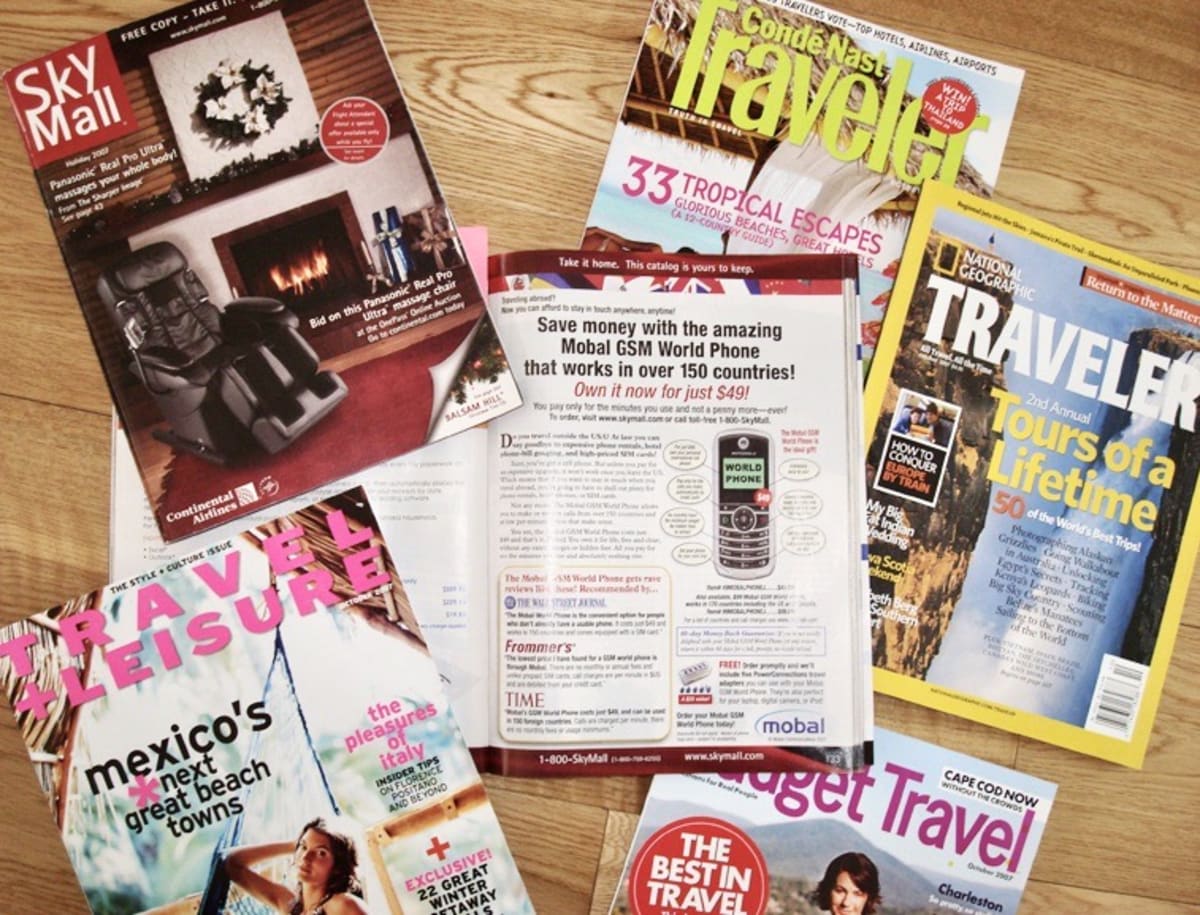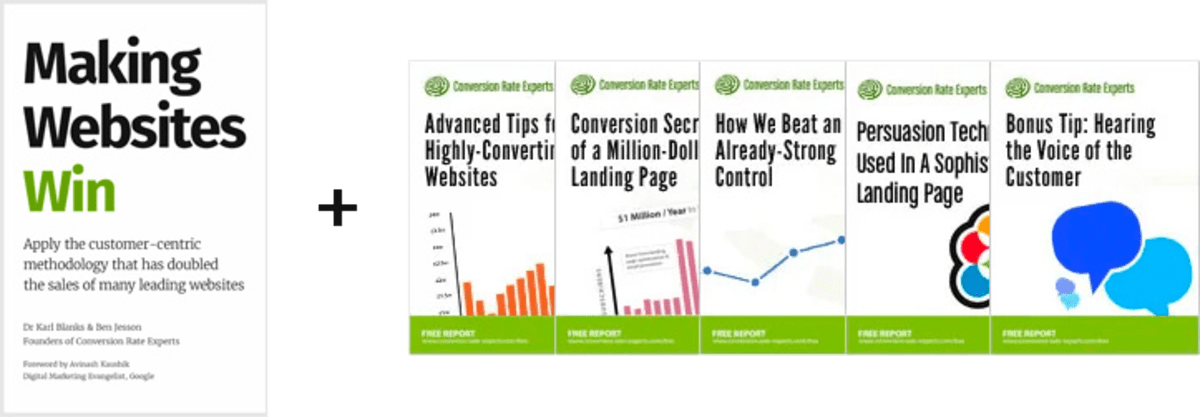How to beat your competitors
Published: February 2024
Crucial techniques you need to survive in ultra‑competitive markets

Some of your visitors end up buying from your competitors. If you don’t have a strategy for winning in spite of competitors, you are doomed.
This article describes many powerful concepts and techniques we have used to help our clients dominate in some of the world’s most competitive markets.
Some of the things you’ll get on this page
- Four reasons why niching usually wins.
- How to spot good niches: three easy techniques you can use.
- Seven ways to spot opportunities your competitors will ignore.
- Some funny photos of good and bad competitive strategies.
How to make your visitors choose you (and not your competitors)
No company exists in a vacuum. Sometimes, visitors abandon your website simply because they prefer your competitor’s website.
How can you win the sale?
You could attempt to become better than all of your competitors in every way—but it’s hard being all things to all people. It’s much more effective to niche—to focus your efforts on being the best in a small number of dimensions.
You can be the best by providing a subset of features that some people would love:
- Our client, Renogy, is an expert in solar power generation but chooses to focus on the off-grid market, including boats, RVs, tiny homes, and cabins.
- Southwest Airlines chose a single dimension in which to excel: low headline prices. They lowered headline prices by cutting costs and turning many features into optional upsells, capturing the (large) market segment that made its decision based primarily on headline price.
- Our client, Jamf, offers enterprise Mobile Device Management (MDM) for Apple devices.
Often, you can niche by targeting a specific group of customers. For example,
- Our client, HappySelf, designs daily journals for children and teenagers, inspiring a lifelong practice of reflection and personal growth.
- Kit is email marketing software for professional bloggers.
- Our client, Custody X Change, serves divorced or separated parents who are seeking to co-parent effectively.
Niching usually wins
When you niche your service to a particular group of needs or customers, you get several powerful advantages. To illustrate the point, consider shampoo. If you study the shelves of a supermarket, you’ll see shampoo for the following:
- Oily, itchy, and greasy hair.
- Heavily dandruffy hair.
- Dry, damaged hair.
- Hair with fox poo in it (to be fair, this one may not be in the same section of the supermarket).
In fact, you’d struggle to find a shampoo that isn’t niched to a particular type of hair.

Niched shampoos have displaced all the non-niched ones because they have been more successful with customers.
Four reasons why niching usually wins

Niching is effective for several reasons:
- A niched product is worded in terms of the customer’s need. The niched product effectively says, “I understand your situation, and I am a ready-made solution for it.” It’s hard to overlook a product designed to satisfy your exact need.
- People are aware that niched things are often better. A surgeon who specializes in a rare type of gastric operation will tend to be better at it than a surgeon who doesn’t. Specialists tend to be more proficient than generalists because they focus their resources on solving a narrower problem. As a result, most people recognize that specialization indicates high performance. So even if all shampoo bottles contained the same ingredients, customers would still expect the specialist ones to be better.
- Niching allows you to become the best in the world. No one checks into a hotel and asks the concierge, “What’s the second-best Chinese restaurant nearby.” Seth Godin argues that buyers always want the best in the world. However, he admits that “the best” depends on what the target segment wants (e.g., Chinese food) and that “the world” may be restricted (e.g., to restaurants within a certain distance of the hotel). Godin argues that, to be successful, a person or company must define the “world” it will be best in, and what it means by “best.” And then, crucially, to not fall short.
- Things that are niched get attention. All death-metal bands have similar logos. Except for the band “Party Cannon.” See if you can spot Party Cannon’s logo:

“Each time our logo goes viral, we gain fans.”—Chris, Party Cannon.
Niching works best for marginal outsiders
Niching works best in marketplaces that are noisy and overcrowded. By being distinctive, you win a disproportionate amount of attention.
Once you have grown to saturate your niche, though, you need to satisfy more people and needs. At that point, the winning strategy is to become less niched and more moderate.
You see this happen during TV talent shows and political campaigns. At the start of a political campaign, a candidate benefits from being provocative. As the campaign progresses and competitors are eliminated, the wise candidate mellows to appeal to a broader audience.
Tread on as few toes as possible
The software company HubSpot refuses to offer consulting services. Instead, it operates a partner program for agencies. As a result, many consultancies around the world evangelize Hubspot. If Hubspot had chosen to offer consultancy services, those same companies would have actively avoided recommending Hubspot.
By being niched and focused, your company can be symbiotic with other businesses. Neighboring companies become allies.
By being unfocused and broad, your company treads on more toes. Those allies become competitors.
Exercise restraint when widening the scope of your services. Try to minimize your number of competitors. Keep your footprint small.
How to spot good niches: three easy techniques you can use
- Look back at the success you have had over the past year. You may find a theme. In effect, you may have already started niching inadvertently. Amplify that niching by communicating it to your visitors. In his book “Entrepreneurship and Innovation,” Peter Drucker describes how Macy’s department store initially downplayed the growing effect of appliance sales on its profits. It considered the sales to be an “embarrassing success.” Macy’s profits only rose once it embraced appliance sales as a part of its image.
- As markets grow, they fragment. If you can pick the next dimension along which your market will fragment, you can get there first. Match.com was once the only dating website anyone had heard of. As the industry matured, many niche dating sites became successful:
- Long-term relationships (eHarmony)
- Time-starved professionals (Lovestruck)
- People who don’t want to pay (PlentyOfFish)
- People of certain religions (ChristianMingle)
- Country folk (MuddyMatches)
- Casual dating (Tinder)
- What is luxury today will be mainstream tomorrow. Study your most advanced, sophisticated, wealthiest users. The problems they have today—and the solutions they use—will soon be mass market. Such users give you a glimpse of the future. When plasma TVs first came out, they were used only by exhibitors at trade shows. As prices fell, plasma TVs began to be bought by public venues like bars. It took years before they began to be bought for domestic use. What are your sophisticated users buying today? How can you help to make that service mainstream?
Niching works best when you create a new category
One of our earliest clients, Mobal, rented phones to international travelers. So did its competitors. We created a new value proposition for Mobal: a travel-phone you could own for just $49, with no monthly fees.
Suddenly, Mobal was no longer one of many phone-rental companies; it was the $49-travel-phone company. Reviews in travel magazines would say, “If you need a phone when you’re abroad, you have two options: (i) rent one or (ii) buy a Mobal phone.”

By creating a new category, Mobal became 50% of the available options. and gained free coverage in TIME, Inc., The Wall Street Journal, The Washington Post, and almost every travel magazine.
You can read here how we tripled Mobal’s sales in 12 months.
Seven ways to spot opportunities your competitors will ignore
One of the most common mistakes is simply identifying an opportunity and then aiming to capture it. Just because something is an opportunity today doesn’t mean it’s worth chasing.
Instead, look for opportunities you can seize without a struggle because your competitors won’t stop you.
List your opportunities, and then run them through the following checklist to identify which of them your competitors are likely to avoid:
Some competitors will avoid an opportunity because it runs against their strategy, their brand, or what they stand for. If Rolex were to start making cars, you could predict with reasonable confidence that it would target the luxury end of the market. Rolex would be unlikely to compete with a company that sells low-end cars. If Ikea were to launch a car, on the other hand, you might expect it to be lower priced and more functionally designed. And you’d probably have to assemble it yourself and start it with an Allen wrench. Ikea would, therefore, be less likely to compete with a company that sells luxury cars.
Coca-Cola brands itself as being an age-old classic. Therefore, Pepsi is safe to position itself as modern because Coca-Cola will not attempt to occupy that position.
Some competitors will avoid an opportunity because it would disrupt their existing business: When Google first made its office software free, it was safe to assume that Microsoft wouldn’t do the same. Such a move would have undermined too much of Microsoft’s revenue. In his book “The Innovator’s Dilemma,” Clayton Christensen calls this principle dependency. Companies depend on their existing customers, revenue, and investors, and are unlikely to upset them. There’s a seven-slide summary of the book here. (Later, of course, Microsoft felt it necessary to offer a free, stripped-down version of its core Office apps.)
You ideally want to focus on an opportunity that will inevitably grow—to “skate where the puck is going.” Fortunately, many competitors will avoid such an opportunity because it isn’t big enough yet. This leaves a gap that you can fill.
Some competitors will avoid an opportunity because they have a track record of failing at that activity. Or not even trying. If a company has always failed at something or avoided doing it, you can predict with reasonable confidence that it will continue to do the same. Often, you’ll never find out the reasons. Fortunately, you don’t need to. For example, when Yahoo acquires a tech company, you can be reasonably confident that that tech company will no longer be a threat.
Some competitors will avoid an opportunity because it doesn’t match their strengths. In this respect, it’s helpful to consider what Guy Kawasaki calls “your unfair advantages.”
Some competitors will avoid an opportunity because they don’t know something you know. Your experience may reveal an opportunity other companies wouldn’t recognize or appreciate.
Are the following psychological biases stopping you from niching?
If niching is so effective, why do so few companies do it? Because niching means overcoming three types of psychological discomfort:
Discomfort 1: Focus = Neglect
Many people agree that they need to focus more. But they think that focus means concentration. It doesn’t. Focus means neglect. As Steve Jobs said, “Focus means saying no to the hundred other good ideas.” Focusing doesn’t feel empowering; it feels embarrassing, upsetting, and scary. A sign that you are focusing is that you frequently cringe at the things you aren’t doing. Your head knows you are doing the right thing, but your stomach turns at the things you are neglecting.
How can you overcome the cringing feeling? Remind yourself that your neglect can be temporary. Once you dominate a particular niche, you can incrementally expand the scope of your business—as Amazon has done. Amazon started as a bookstore and has evolved to become an (almost) everything store.

Discomfort 2: You must ignore social proof
If you see people running out of a building, you would be wise to copy them; maybe the building is on fire. People trust social proof because it’s often a reliable indicator. However, it can work against you. Next time your market research reveals an opportunity, and you wonder why no one else has tried it, be aware that your desire for social proof might be the only thing standing between you and success.
Discomfort 3: You mustn’t conform
We tend to behave like those around us, to be liked or accepted. This same instinct can cause marketers to feel discomfort every time they stray from the norm. But niching means doing things that others don’t. So next time you feel a twinge of awkwardness because your company is doing something eccentric—because you are sticking your neck out—remind yourself that your desire for conformity might be holding you back.
Conclusion
The best way to “beat your competitors” is often to redefine yourself so that you have fewer of them.
Be prepared to go to war, but choose your battles wisely.
How much did you like this article?
What’s your goal today?
1. Hire us to grow your company
We’ve generated hundreds of millions for our clients, using our unique CRE Methodology™. To discover how we can help grow your business:
- Read our case studies, client success stories, and video testimonials.
- Learn about us, and our unique values, beliefs and quirks.
- Visit our “Services” page to see the process by which we assess whether we’re a good fit for each other.
- Schedule your FREE website strategy session with one of our renowned experts.
Schedule your FREE strategy session
2. Learn how to do conversion
Download a free copy of our Amazon #1 best-selling book, Making Websites Win, recommended by Google, Facebook, Microsoft, Moz, Econsultancy, and many more industry leaders. You’ll also be subscribed to our email newsletter and notified whenever we publish new articles or have something interesting to share.
Browse hundreds of articles, containing an amazing number of useful tools and techniques. Many readers tell us they have doubled their sales by following the advice in these articles.
Download a free copy of our best-selling book
3. Join our team
If you want to join our team—or discover why our team members love working with us—then see our “Careers” page.
4. Contact us
We help businesses worldwide, so get in touch!
© 2025 Conversion Rate Experts Limited. All rights reserved.










